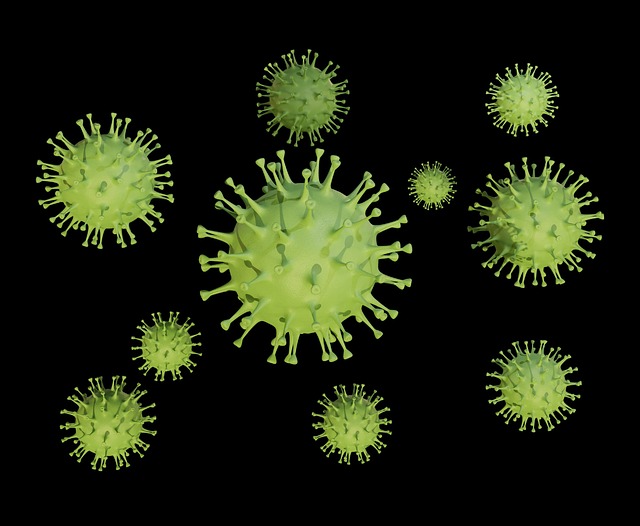Key points What are the 1-year outcomes among patients who survive intensive care unit (ICU) treatment for COVID-19? Findings In this exploratory multicenter prospective cohort study that included 246 patients who were alive 1 year after ICU treatment for COVID-19, 74.3% reported physical symptoms, 26.2% reported mental symptoms, and 16. 2% reported cognitive symptoms. Meaning Physical, mental, and cognitive symptoms were common 1 year after ICU treatment for COVID-19. |
The COVID-19 pandemic resulted in an increase in critically ill patients requiring treatment in intensive care units (ICUs), with many critical illness survivors at risk of long-term impairments.
Post-ICU symptoms can be divided into the physical, mental, and cognitive domain and are associated with higher 1-year mortality, higher healthcare costs, and lower quality of life (QoL).
Recent studies have shown that patients who required ICU treatment for COVID-19 experience short-term symptoms in all 3 domains. The long-term consequences are still largely unknown, but are likely to be substantial given the presence of known risk factors for post-ICU problems, the circumstances of the pandemic, and the emergence of symptoms in hospitalized patients who are not in the ICU with COVID-19.
In view of the long duration of ICU treatment among patients with COVID-19, worse long-term outcomes would be expected compared to ICU patients without COVID-19.
Additionally, patients who survive acute respiratory distress syndrome (ARDS) (which is clinically similar to severe COVID-19) often experience long-term symptoms. Understanding long-term outcomes among COVID-19 patients treated in the ICU is important to provide appropriate care and aftercare tailored to the clinical needs of these patients.
The objective of the present study was to evaluate the appearance of physical, mental, and cognitive symptoms in patients with COVID-19 one year after receiving treatment in the ICU.
Importance
One-year outcomes in patients who have had COVID-19 and were treated in the intensive care unit (ICU) are unknown.
Aim
To evaluate the emergence of physical, mental and cognitive symptoms among patients with COVID-19 one year after treatment in the ICU.
Design, environment and participants
Prospective exploratory multicenter cohort study conducted in the ICU of 11 Dutch hospitals. Patients (N = 452) with COVID-19, older than 16 years and alive after hospital discharge following admission to 1 of 11 ICUs during the first COVID-19 surge (March 1, 2020 to March 1 July 2020) were eligible for inclusion.
Patients were followed for 1 year and the final follow-up date was June 16, 2021.
Exhibitions
COVID-19 patients who received treatment in the ICU and survived 1 year after ICU admission.
Main results and measures
Primary outcomes were self-reported occurrence of physical symptoms (frailty [clinical frailty scale score ≥5], fatigue [checklist individual strength: fatigue subscale score ≥27], physical problems), mental symptoms (anxiety [HADS subscale score and depression {HADS subscale score} ≥8], depression [HADS subscale score ≥8], post-traumatic stress disorder [mean event impact scale score ≥1.75 ]) and cognitive symptoms (Cognitive Impairment Questionnaire—score 14 ≥43) 1 year after ICU treatment and measured with validated questionnaires.
Results
Of the 452 eligible patients, 301 (66.8%) patients and 246 (81.5%) female patients could be included (mean [SD] age, 61.2 [9.3] years; 176 men [71.5% ]; median ICU stay, 18 days [IQR, 11 to 32]) completed the 1-year follow-up questionnaires.
One year after ICU treatment for COVID-19, 182 of 245 patients reported physical symptoms (74.3% [95% CI, 68.3% to 79.6%]), 64 of 244 patients reported mental symptoms ( 26.2% [95% CI, 20.8% to 32.2%]) and cognitive symptoms were reported by 39 of 241 patients (16.2% [95% CI, 11.8% to 21.5%]). ).
The most frequently reported new physical problems were weakness (95/244 patients [38.9%]), joint stiffness (64/243 patients [26.3%]), joint pain (62/243 patients [25.5%] ]), muscle weakness (60/242 patients [24.8%]) and myalgia (52/244 patients [21.3%]).
Discussion
In this exploratory prospective cohort study including patients from 11 Dutch hospitals who survived 1 year after ICU treatment for COVID-19, physical, mental, or cognitive symptoms were frequently reported. Additionally, many survivors experienced a weakened condition or musculoskeletal problems and had work-related problems as a result of the critical illness episode.
Studies in patients who survived ICU treatment for COVID-19 with outcomes up to 6 months of follow-up showed comparable prevalence rates of fatigue and musculoskeletal problems, for example, ICU-acquired weakness.
In other viral outbreaks, for example SARS in 2003 or MERS in 2012, about a third of ICU survivors reported mental health problems beyond 6 months after discharge, which is slightly higher than the 1-year rate. of 26.2% for the mental health symptoms reported in the present study.
Conclusions and relevance In this exploratory study of patients in 11 Dutch hospitals who survived 1 year after ICU treatment for COVID-19, physical, mental, or cognitive symptoms were frequently reported. |
















